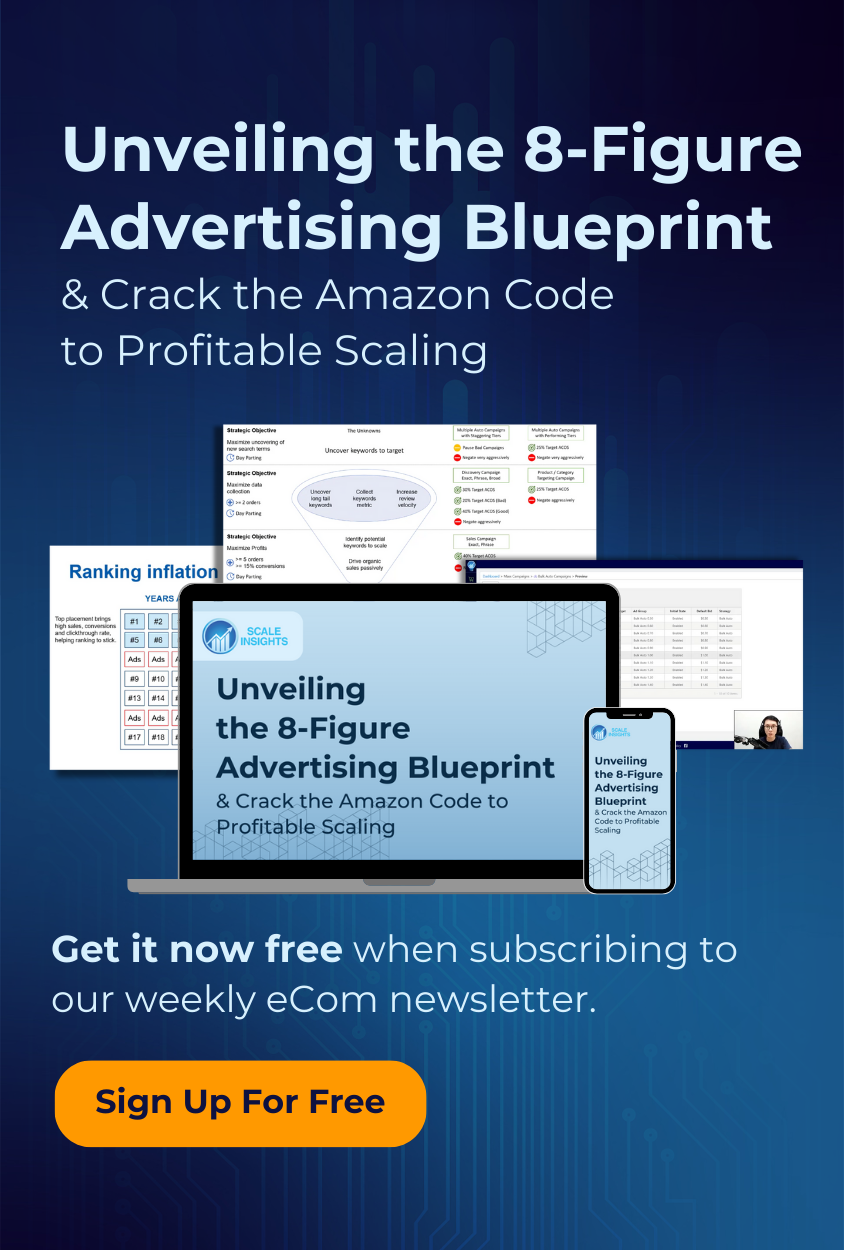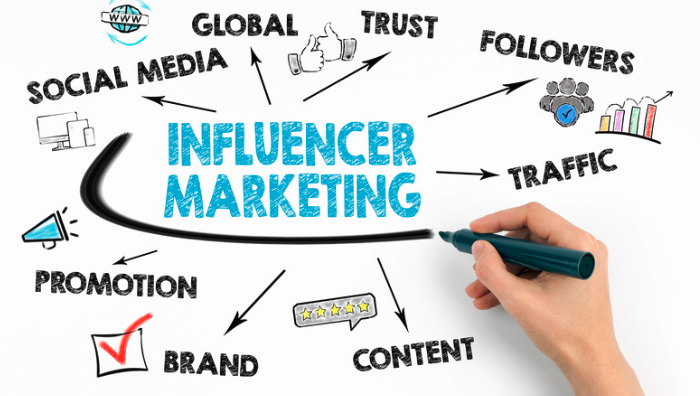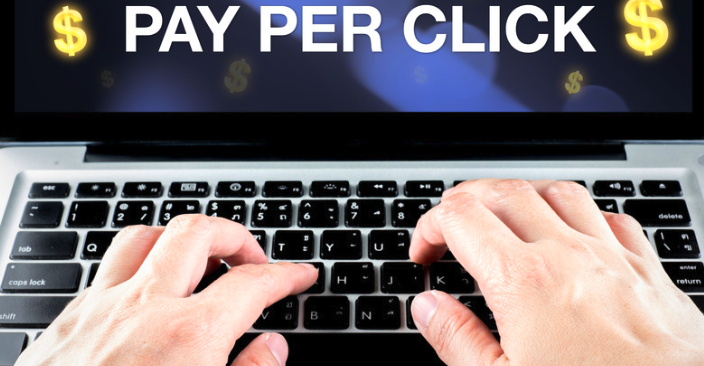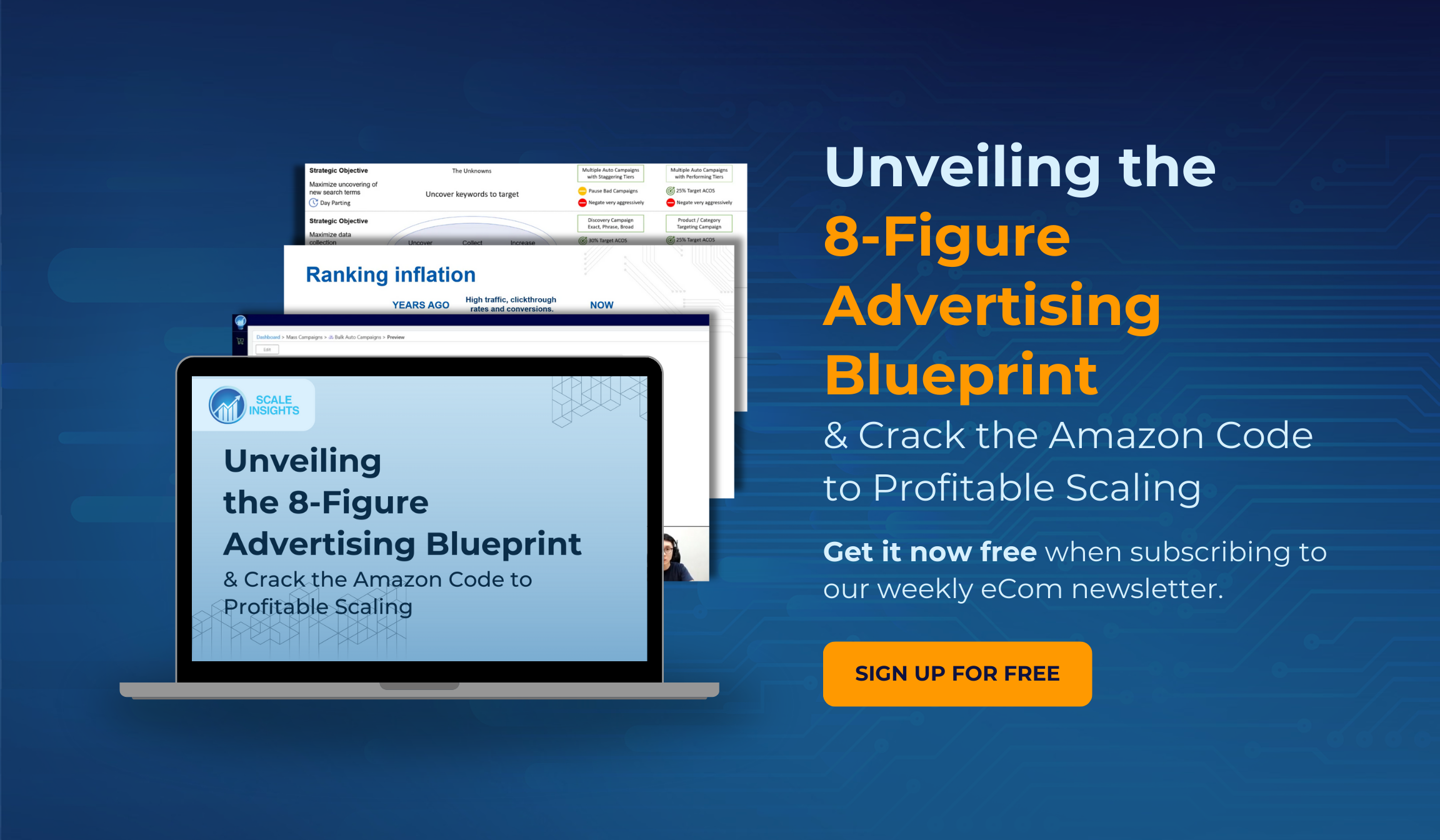In 2024, the landscape of digital marketing continues to evolve with diverse strategies to maximize online visibility and sales. This guide provides a detailed comparison between Influencer Marketing and Amazon Pay-Per-Click (PPC), two pivotal methods in today’s advertising toolkit.
While Influencer Marketing harnesses the power of social media personalities to boost brand awareness and credibility, Amazon PPC offers a direct, pay-for-performance model of advertising within the Amazon ecosystem.
Here, we will explore their methodologies, advantages, potential drawbacks, and optimal usage scenarios to help you understand which strategy could be more effective for your business goals in the dynamic digital marketplace.
What is an Influencer Marketing?
Influencer marketing is a type of social media marketing that involves partnering with individuals who have a significant following on social media platforms. These individuals, known as influencers, have the power to affect the purchasing decisions of their followers due to their social influence and credibility.
Influencer marketing campaigns typically involve a brand partnering with an influencer to create content that promotes the brand's products or services. This content can take many forms, including social media posts, blog articles, videos, and more.
Key Components of Influencer Campaigns
The key components of influencer campaigns include identifying the right influencers to partner with, developing a clear message that resonates with the influencer's audience, and measuring the effectiveness of the campaign.
Benefits of Influencer Marketing
One of the main benefits of influencer marketing is its ability to reach a highly targeted audience. By partnering with influencers who have a following that aligns with a brand's target demographic, brands can ensure that the right people are seeing their message.
Another important aspect of influencer marketing is trust. Influencers have built up a level of trust with their followers over time, which means that their recommendations are often taken seriously. This can lead to higher levels of engagement and ultimately, more sales for the brand.
Why is Influencer Marketing Important?
Influencer marketing has become an essential part of a brand's marketing strategy. It is a powerful tool that can help brands reach new audiences, increase brand awareness, and establish authenticity. Here are some reasons why influencer marketing is important:
1. Increased Brand Awareness
Influencer marketing can help brands increase their visibility and reach a wider audience. When an influencer promotes a brand, their followers are likely to take notice and become interested in the brand. This can lead to increased brand awareness and brand recognition, which can help the brand stand out in a crowded market.
2. Reaching New Audiences
Influencer marketing can also help brands reach new audiences that they may not have been able to reach through traditional marketing channels. Influencers have their own unique following and can help brands tap into new markets and demographics. This can be especially helpful for brands that are looking to expand their reach and grow their customer base.
3. Authenticity
One of the biggest benefits of influencer marketing is that it can help brands establish authenticity. Influencers are seen as trusted sources of information and recommendations, and their followers often view them as experts in their field. When an influencer promotes a brand, their followers are more likely to trust the brand and perceive it as authentic.
Types of Influencer Marketing Campaigns
Influencer marketing campaigns come in various forms, each with its own unique benefits and drawbacks.
Here are some of the most common types of influencer marketing campaigns:
-
Sponsored posts
-
Giveaways and contests
-
Affiliate marketing
-
Product reviews
-
Brand ambassador programs
1. Sponsored Posts
Sponsored posts are one of the most common types of influencer marketing campaigns. In this type of campaign, a brand pays a social media influencer to create a post about their product or service. The post can be an image, video, or text, and should be clearly marked as sponsored content.
2. Giveaways and Contests
Giveaways and contests are a great way to increase engagement and reach on social media. In this type of campaign, a brand partners with an influencer to give away a product or service to their followers. The influencer will typically create a post promoting the giveaway or contest, and followers will be required to like, comment, or share the post to enter.
3. Affiliate Marketing
Affiliate marketing is a performance-based marketing strategy where an influencer earns a commission for promoting a brand's product or service. In this type of campaign, the influencer will typically share a unique affiliate link with their followers. When a follower clicks on the link and makes a purchase, the influencer earns a commission.
4. Product Reviews
Product reviews are a great way to build trust and credibility with potential customers. In this type of campaign, a brand sends their product to an influencer for them to review and share their thoughts with their followers. The influencer will typically create a post or video reviewing the product and sharing their honest opinion.
5. Brand Ambassador Programs
Brand ambassador programs are a long-term partnership between a brand and an influencer. In this type of campaign, the influencer becomes a brand ambassador and promotes the brand's products or services on an ongoing basis. This type of campaign is great for building brand awareness and loyalty.
Measuring the Success of Influencer Marketing Campaigns
Measuring the success of influencer marketing campaigns is essential to determine the effectiveness of the campaign and to make data-informed decisions for future campaigns.
Key Performance Indicators (KPIs) are specific and measurable metrics that indicate how well an influencer marketing campaign performs.
There are several KPIs that brands can track to measure the success of their influencer marketing campaigns. Some of the commonly used KPIs include:
-
Engagement Rate: This measures the level of engagement that the influencer's post receives from their followers. It is calculated by dividing the total number of likes, comments, and shares by the total number of followers and multiplying by 100.
-
Reach: This measures the number of people who have seen the influencer's post. It is an important metric to track as it helps brands understand the potential audience that their campaign is reaching.
-
Conversion Rate: This measures the percentage of people who have taken the desired action after seeing the influencer's post, such as making a purchase or signing up for a newsletter.
-
Return on Investment (ROI): This measures the amount of revenue generated from the influencer marketing campaign compared to the amount spent on the campaign.
There are several tools available that can help brands track these KPIs. Some of the commonly used tools include Google Analytics, Hootsuite, and Sprout Social. These tools can provide valuable insights into the performance of the campaign and help brands make data-informed decisions for future campaigns.
Challenges and Considerations in Influencer Marketing
Influencer marketing is a powerful way to reach a large and engaged audience. However, it also comes with its own set of challenges and considerations that brands must keep in mind.
One of the most significant challenges in influencer marketing is ensuring authenticity. Brands must find influencers who genuinely believe in their product or service and can communicate that belief to their followers. This can be difficult, as some influencers may be more interested in the payment they receive than in promoting the brand.
Another challenge is budget constraints. Influencer marketing can be expensive, and brands must be careful to allocate their resources effectively. This may mean working with micro-influencers or focusing on a smaller number of high-profile influencers.
Maintaining transparency is also crucial in influencer marketing. Brands should be clear about their relationship with influencers and disclose any compensation or incentives provided to them. Failure to do so can damage the brand's reputation and erode trust with consumers.
Finally, brands must be prepared for the unpredictable nature of influencer marketing. Influencers may change their content or messaging, or unexpected events may occur that impact the campaign. Brands must be flexible and able to adapt to these changes to ensure the success of their influencer marketing efforts.
What does Amazon Influencer Do?
Amazon Influencer is a program that helps influencers generate revenue by promoting products on Amazon. The program provides influencers with a dedicated page on Amazon where they can showcase their favorite products to their followers.
The page includes a custom URL that influencers can share on their social media profiles, websites, or blogs. When a follower clicks on an influencer's link and makes a purchase, the influencer earns a commission on the sale.
Amazon Influencer provides a range of tools that influencers can use to promote products. For example, influencers can create product lists, which are curated collections of products that they recommend to their followers.
These lists can be organized by theme, such as "Holiday Gift Ideas" or "Fitness Essentials." Influencers can also use Amazon's social media sharing tools to promote products on their social media profiles.
In addition to promoting products on Amazon, influencers can also earn commissions on sales of products from other websites.
Amazon Influencer provides a tool called "Influencer Page Insights," which allows influencers to track clicks, views, and earnings from their Amazon page. This tool can help influencers optimize their page and improve their earnings.
How Amazon Influencer Marketing Works
Amazon influencer marketing is a program that allows influencers to earn money by promoting Amazon products. The program is centralized, well-organized, and easy to participate in.
Here's how it works:
-
Content creators apply to be Amazon influencers. Once approved, they get their own storefront that features their recommended products.
-
Influencers promote the products on their storefront and social media channels. They can also include affiliate links in their content, which allows them to earn a commission on any sales that result from their promotion.
-
When a customer clicks on an affiliate link and makes a purchase, the influencer earns a commission. The commission rate varies depending on the product category and the influencer's performance.
-
Amazon provides influencers with detailed reports on their performance, including the number of clicks, conversions, and earnings.
-
Brands can also participate in Amazon influencer marketing by partnering with influencers to promote their products. This allows them to reach a wider audience and increase their credibility.
How Amazon Influencer Marketing Drives Sales
Amazon influencer marketing is a powerful tool that can help drive sales for businesses of all sizes. By partnering with influencers who have a large following on social media, brands can reach new audiences and increase their visibility online. Here are a few ways that Amazon influencer marketing can help drive sales:
-
Increased visibility: When an influencer promotes a product on their social media channels, it can reach a large audience quickly. This increased visibility can lead to more sales and brand awareness.
-
Targeted marketing: By working with influencers who have a similar target audience, brands can reach people who are more likely to be interested in their products. This targeted marketing can lead to higher conversion rates and more sales.
-
Authenticity: Influencers are known for their authenticity and honesty. When they promote a product, their followers trust their opinion and are more likely to make a purchase based on their recommendation.
-
Product reviews: Influencers often provide detailed product reviews, which can help potential customers make informed purchasing decisions. This can lead to higher customer satisfaction and repeat business.
Overall, Amazon influencer marketing is a valuable tool to help businesses increase sales and reach new audiences. By partnering with influencers who have a large following on social media, brands can increase their visibility, target their marketing efforts, and build trust with potential customers.
Amazon PPC vs. Influencer Marketing
When it comes to promoting products on Amazon, sellers have a variety of strategies at their disposal. Two popular methods are Amazon Pay-Per-Click (PPC) advertising and influencer marketing. Each approach has its own set of advantages and can be effective depending on the product, target audience, and marketing goals.
Amazon PPC Advertising:
Amazon PPC is an advertising model where sellers bid on keywords so that their product listings appear in prominent positions within Amazon's search results and on product detail pages. This type of advertising can be highly targeted and is designed to drive immediate sales.
-
Targeted Reach: Amazon PPC allows sellers to target customers who are already in a shopping mindset and actively searching for products on the Amazon platform. This can lead to higher conversion rates as the ads reach potential buyers who have a clear intent to purchase.
-
Cost-Effective: With PPC, sellers only pay when a potential customer clicks on their ad. This means that they can control their advertising spend and optimize their campaigns to ensure a good return on investment.
-
Measurable Results: Amazon provides detailed analytics for PPC campaigns, allowing sellers to track performance and adjust their strategies accordingly. Metrics such as click-through rate (CTR), conversion rate, and advertising cost of sales (ACoS) are readily available.
-
Quick Impact: PPC campaigns can be launched quickly and can start driving sales almost immediately. This makes it an excellent option for new product launches or for boosting visibility during peak shopping periods.
Influencer Marketing:
Influencer marketing involves partnering with social media influencers or bloggers to promote products to their followers. This method leverages the trust and relationship influencers have with their audience to drive brand awareness and sales.
-
Authentic Engagement: Influencers have the ability to create authentic content that resonates with their audience. When they recommend a product, their followers are more likely to consider it credible and are influenced by their endorsement.
-
Brand Awareness: Influencer marketing can significantly boost brand visibility and awareness, reaching audiences that might not be actively searching for products on Amazon but are receptive to recommendations.
-
Long-Term Relationships: Collaborating with influencers can lead to long-term partnerships that benefit both the brand and the influencer. This can lead to ongoing promotion and a steady stream of content that keeps the brand top-of-mind for consumers.
-
Content Creation: Influencers are content creators who can produce high-quality, engaging content that can be repurposed across the seller's marketing channels. This can include images, videos, blog posts, and social media updates that showcase the product in real-life scenarios, which can be more relatable and compelling than traditional advertisements.
-
Trust and Credibility: Influencers have built a level of trust with their audience that can translate into higher trust for the endorsed product. Recommendations from influencers can carry more weight than standard advertising because they are seen as personal, honest opinions.
-
Viral Potential: Influencer campaigns have the potential to go viral, significantly amplifying the reach beyond the influencer's own audience. When content is particularly creative, entertaining, or resonant, it can be shared widely across social platforms, leading to increased exposure.
-
SEO Benefits: Influencer marketing can also have indirect benefits for a brand's search engine optimization (SEO). Influencers often link back to the product or brand's website, which can improve search rankings and drive additional organic traffic.
Conclusion
In conclusion, influencer marketing is a powerful tool for businesses looking to increase their reach, engagement, and ultimately, revenue. By partnering with influencers who have a large and engaged following, brands can tap into a highly targeted audience and leverage the trust that these influencers have built with their followers.
One example of a company that has successfully utilized influencer marketing is Amazon. Their Amazon Influencer Program allows influencers to earn commissions by promoting Amazon products to their followers. This program has been a win-win for both Amazon and the influencers, as it has increased sales for the company while providing a new revenue stream for the influencers.
It is important to note that while influencer marketing can be effective, it is not a one-size-fits-all solution. Brands must carefully consider their target audience, budget, and goals when selecting influencers to partner with. Additionally, it is crucial to ensure that influencer partnerships are transparent and comply with FTC guidelines to maintain trust with consumers.
Frequently Asked Questions
How Do I Engage With Amazon Influencers?
To engage with Amazon influencers, you can start by searching for influencers in your niche on Amazon's influencer storefront. You can then reach out to them through their social media channels or email to introduce yourself and propose a collaboration. It's important to have a clear idea of what you want to achieve with the collaboration and how it can benefit both parties.
What is Influencer Marketing How Does It Work?
Influencer marketing is a type of marketing that leverages the influence of individuals with a large following on social media to promote products or services. It works by identifying influencers in your niche, reaching out to them, and collaborating with them to create content that promotes your brand. The content can take many forms, such as sponsored posts, reviews, or product demos. The goal is to reach a larger audience and increase brand awareness and sales.
What is the Difference Between an Amazon Affiliate and an Amazon Influencer?
Amazon Affiliate is a program that allows you to earn a commission by promoting Amazon products on your website or social media channels. Amazon Influencer, on the other hand, is a program that allows you to create a storefront on Amazon with your favorite products and share them with your followers. You can earn a commission on the products sold through your storefront. The main difference is that Amazon Affiliate focuses on promoting individual products, while Amazon Influencer focuses on promoting a curated selection of products.
How Do I Become an Amazon Affiliate With No Followers?
To become an Amazon Affiliate with no followers, you can start by creating a website or blog in your niche and creating high-quality content that attracts visitors. You can then sign up for the Amazon Affiliate program and start promoting relevant products on your website or social media channels. It's important to disclose that you are an affiliate and to provide value to your audience by recommending products that you believe in.
How Many Followers Do I Need to Be an Amazon Influencer?
There is no set number of followers required to become an Amazon Influencer. However, Amazon looks for influencers who have a significant following and engagement on their social media channels. It's important to have a clear niche and a consistent brand image to increase your chances of being accepted into the program.



 Scale Insights Team
Scale Insights Team






